Compounds with noble gases don’t form naturally on Earth. But in the interstellar medium, they are helping scientists probe the history of the universe.
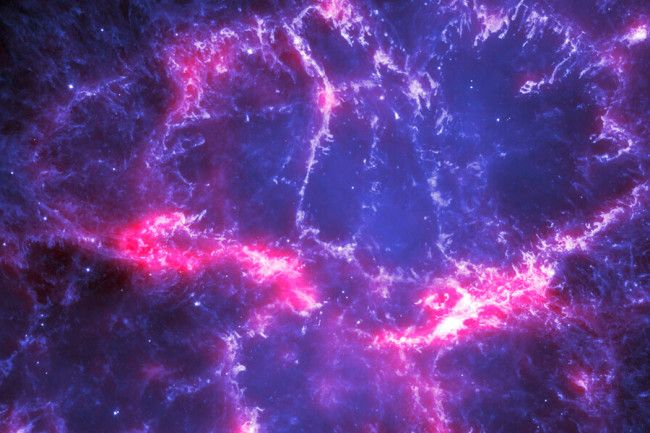

Atomic physicists at NASA are working to create an exotic state of matter in space 🤯
Via Seeker
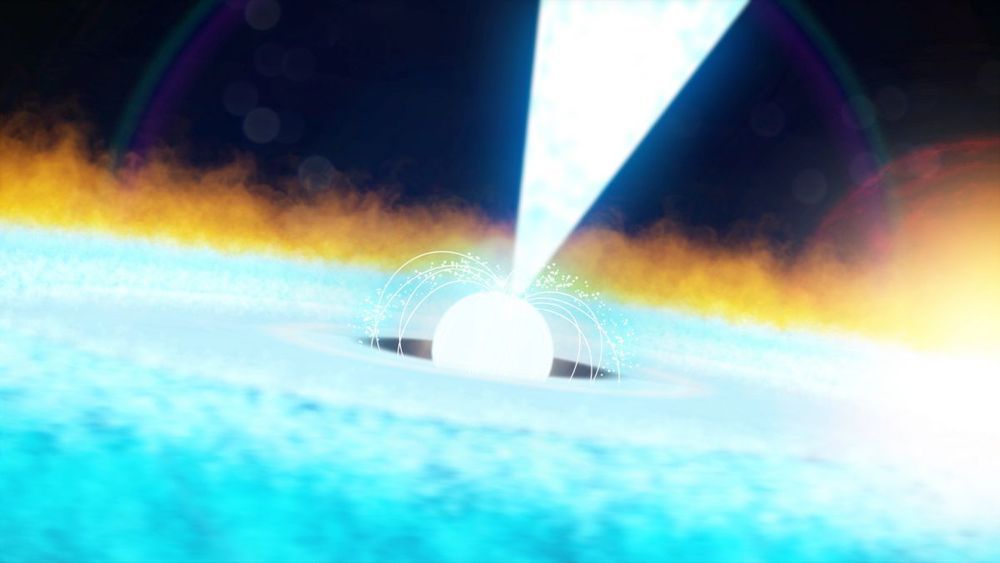
A twisted little neutron star devoured chunks of its stellar twin, revealing a never-before-seen phenomenon to scientists watching on Earth.
Unlike most objects in space (including other neutron stars and planet Earth), neutron star GRO J2058+42 doesn’t have two simple magnetic poles at its north and south ends. Instead, it has a distorted magnetic field, with warped regions of intense magnetism sprinkled across the object’s surface.
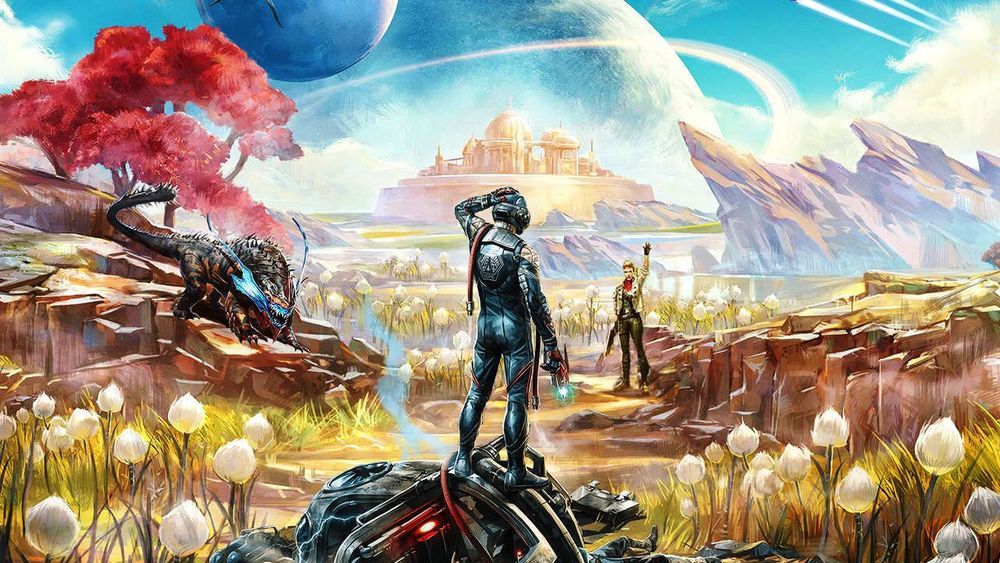
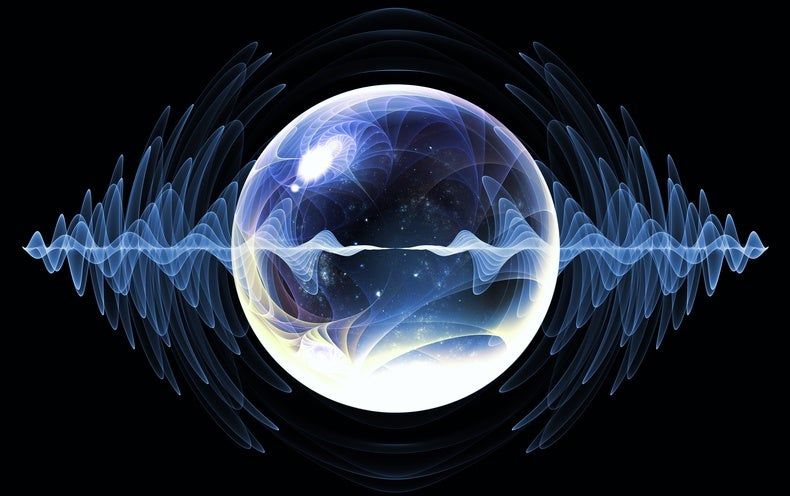
Abstract: In the context of warped extra-dimensional models with all fields propagating in the bulk, we address the phenomenology of a bulk scalar Higgs boson, and calculate its production cross section at the LHC as well as its tree-level effects on mediating flavor changing neutral currents. We perform the calculations based on two different approaches. First, we compute our predictions analytically by considering all the degrees of freedom emerging from the dimensional reduction (the infinite tower of Kaluza Klein modes (KK)). In the second approach, we perform our calculations numerically by considering only the effects caused by the first few KK modes, present in the 4-dimensional effective theory. In the case of a Higgs leaking far from the brane, both approaches give the same predictions as the effects of the heavier KK modes decouple. However, as the Higgs boson is pushed towards the TeV brane, the two approaches seem to be equivalent only when one includes heavier and heavier degrees of freedom (which do not seem to decouple). To reconcile these results it is necessary to introduce a type of higher derivative operator which essentially encodes the effects of integrating out the heavy KK modes and dresses the brane Higgs so that it looks just like a bulk Higgs.
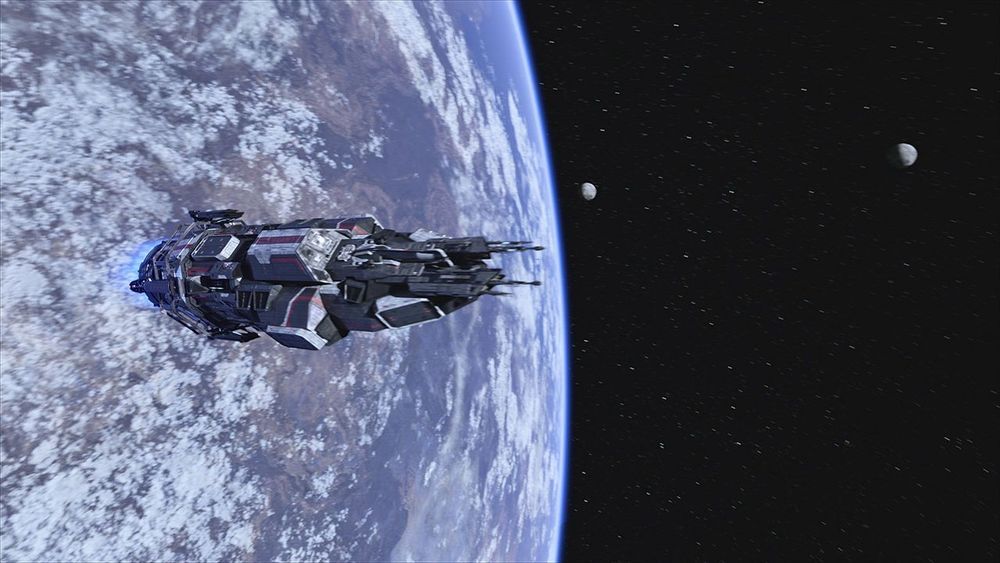
On 13 December, Amazon Prime will air the fourth season of The Expanse, a hardboiled space drama renowned for its working-class characters and real-world space physics. Showrunner Naren Shankar is part of the reason the science checks out. The veteran writer and producer for programs such as Star Trek: The Next Generation, Farscape, and the police procedural CSI: Crime Scene Investigation, has a doctorate in applied physics and electrical engineering.
Shankar chatted with about why he feels it’s important to have a realistic sci-fi show, and how television work is like the scientific peer-review process.
This interview has been edited for clarity and length.
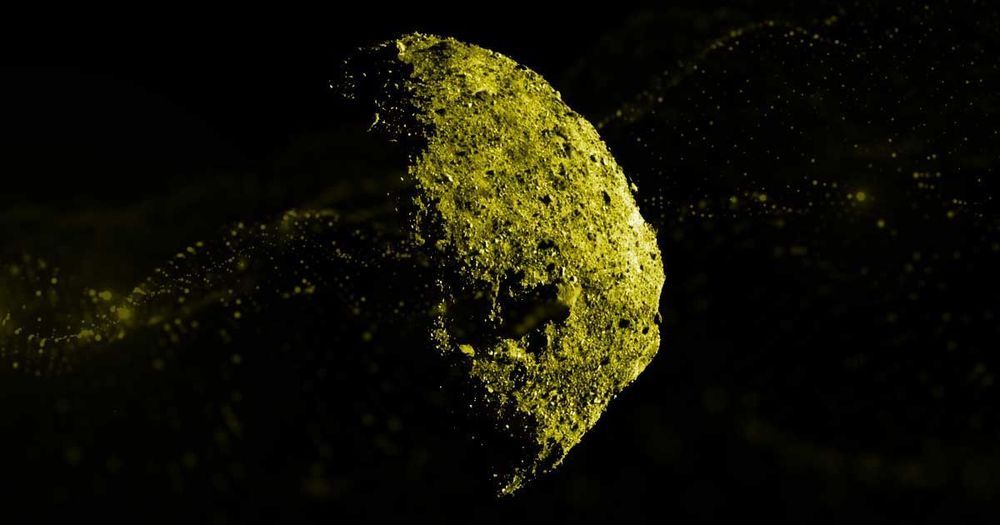
No one has ever seen an active asteroid up close like this.
“Among Bennu’s many surprises, the particle ejections sparked our curiosity, and we’ve spent the last several months investigating this mystery,” Dante Lauretta, OSIRIS-REx principal investigator at the University of Arizona, Tucson, said in a statement. “This is a great opportunity to expand our knowledge of how asteroids behave.”
The researchers are trying to figure out what is causing these “ejection events.”
“No one has ever seen an active asteroid up close like this,” Carl Hergenrother, an astronomer at the University of Arizona, told Wired. “It wasn’t that long ago that the conventional wisdom was that asteroids are these dead bodies that didn’t change very much.”
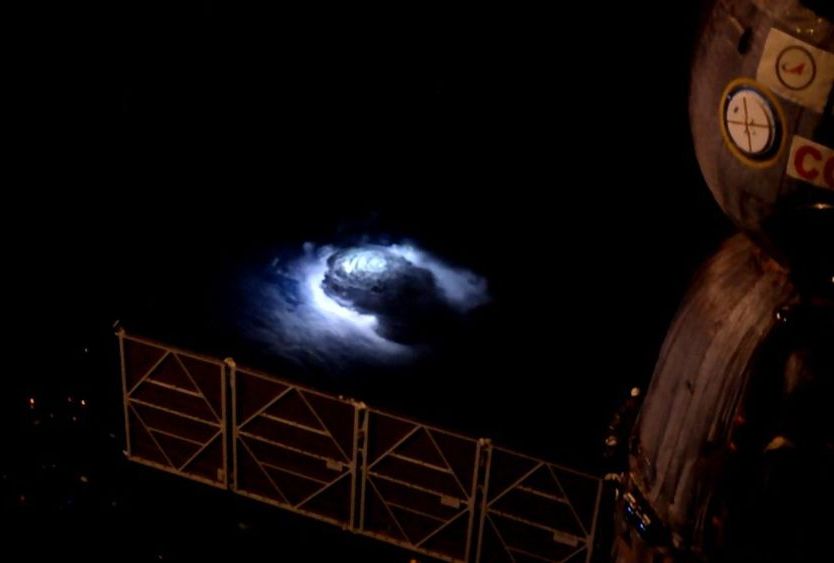
O…O.
At 8:01 p.m. on October 10, 2018, a bolt of lightning flashed inside of a storm cloud just east of the Indonesian island of Sulawesi. The International Space Station was passing overhead at the time, and a suite of instruments observed as the bolt produced a flash of gamma radiation—and, simultaneously, emitted a glowing ring of ultraviolet and visible light in the topmost layer of the atmosphere.
Scientists today are presenting the results of this observation, the first to capture both a terrestrial gamma ray flash, or TGF, and the visible-light component of an Elve, a dim disk of ionospheric radiation. This observation provides more evidence for the connection between lightning, the radiation produced by storms, and electromagnetic phenomena at the top of the atmosphere, while illustrating more of the wild radioactive curiosities that weather can generate.
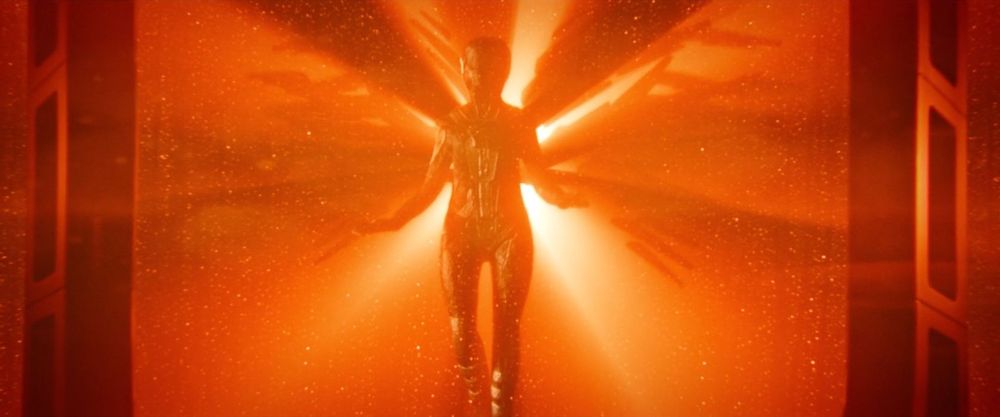
O.,o.
The Red Angel was an entity sought by both Starfleet and Section 31 in relation to a series of mysterious red bursts that occurred in the late 2250s. The crew of the USS Discovery adopted the term “Red Angel” from Spock, who had encountered her during his youth. ( DIS : “ Point of Light ”, ” An Obol for Charon ”)
While Starfleet could not link its appearance to any known winged or avian lifeforms in the Federation, it became gradually clear that the Red Angel was a time traveler operating a suit developed under the Daedalus Project by Section 31. It was ultimately discovered that the Angel was in fact two separate entities wearing different time-travel suits, and their identities were later determined to be Gabrielle Burnham and a future version of her daughter Michael. The former had attempted to prevent Control from taking over the galaxy, while the latter set the red bursts in order to guide Discovery’s mission in a way conducive to defeating Control. ( DIS : ” An Obol for Charon ”, ” The Red Angel ”, ” Such Sweet Sorrow, Part 2 ”)